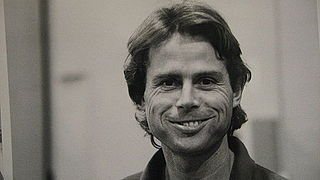A Quote by Alfred North Whitehead
Rationalism is an adventure in the clarification of thought.
Quote Topics
Related Quotes
Philosophy aims at the logical clarification of thoughts. Philosophy is not a body of doctrine but an activity. A philosophical work consists essentially of elucidations. Philosophy does not result in 'philosophical propositions', but rather in the clarification of propositions. Without philosophy thoughts are, as it were, cloudy and indistinct: its task is to make them clear and to give them sharp boundaries.
What I saw so clearly when I started climbing was adventure. Difficulty was only an ingredient. I never thought to wonder about grades, just as I never thought to wonder what Tarzan might bench press. I found the closer I moved to sport, the closer I felt to science - and the closer I moved to adventure, the closer I felt to greatness.
Whenever I finish a book, I go off and have some kind of adventure. Having had an adventure in my writing chair or on my writing sofa, an internal adventure, then I need to balance that off with an external adventure, so I'll go tramping through Africa or whitewater rafting or float to Hawaii in a martini shaker or something.
Give me an adventure. I'm not talking about some massive adventure. Just something that would make getting fired seem small. Something that I might remember when I'm old." "I can't predict the future," I said, "but based on what little I know so far, I'm afraid it has to be a massive adventure or nothing." "Great!" "Probably the kind of adventure that ends in a mass burial.
I'm cheaper than Anthony Hopkins. The other actors they asked to play Gandalf wouldn't go to New Zealand on that money for that length of time. I thought it would be a bit of an adventure. Tony Hopkins didn't think it would be an adventure. Tony is part of Hollywood. I'm an eccentric English actor, and there's a lot of us around.
The term "rational" and its variants (rationality, rationalism) are used in a lot of contexts in economic debate, both positively and negatively, but nearly always sloppily or dishonestly. A specimen I've seen on more occasions than I can count is the line (usually presented with a sense of witty originality) "if you are opposed to economic rationalism, you must be in favor of economic irrationalism"... I've come to the conclusion that the word "rational" has no meaning that cannot better be conveyed by some alternative term and that the best advice is probably to avoid it altogether.






































